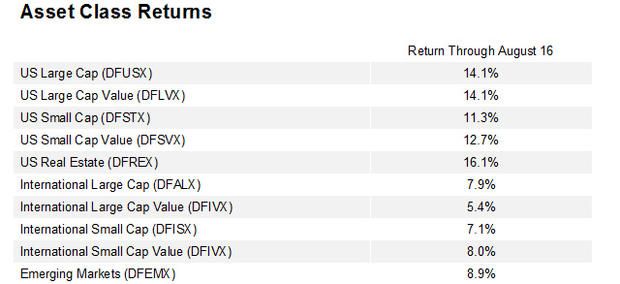Stocks continue defying news and experts
(MoneyWatch) Although the economic news hasn't been good this year, markets have blown past expert predictions.
This serves as another reminder of why you don't let news dictate your investment strategy.
Imagine you had a crystal ball and had been able to foresee all the events that have occurred so far this year. You would think that would give you a clear advantage in terms of investing. What would you have done if you knew the following would occur?
- The U.S. economy's growth rate has slowed to a crawl
- The growth rate of China, India, Brazil and other major markets have also slowed significantly
- Europe's economy is in outright recession
- The European debt crisis continues to fester, with no real resolution
- The U.S. faces a "fiscal cliff" (the expiration of tax cuts on payrolls, capital gains and dividends), our own debt problems and a possible further credit downgrade.
- The drought in the U.S. is pushing food prices higher
- The threat of Iran disrupting the oil supply lines remains present
Despite all this bad news, as I write this the S&P 500 Index (which doesn't include returns from dividends) is within a few points of reaching its highest closing level since May 2008, when it hit 1,426.
Why this investment guru is wrong on stocks
Should you dump your international stocks?
Like pain? Check your portfolio
At the beginning of the year, Wall Street firms saw the S&P 500 increasing about 6.1 percent for the year, to 1,334. Only two firms, JPMorgan Chase (JPM) and Deutsche Bank (DB), had the S&P 500 finishing the year higher than its current level.
And the U.S. is not the only market to provide investors with an upside surprise. Despite the problems mentioned above, international stocks have provide much higher returns than safe fixed-income investments.
The table below shows the year-to-date returns (through August 16) of the passive asset class funds of investment firm Dimensional Fund Advisors. They represent the returns available to investors in various asset classes around the globe.
The lesson to take from this experience, which is far from unique, is that not only should you ignore the headlines when making investment decisions, but that you should ignore all market forecasts because there are simply no good ones. One reason for this inability to forecast markets accurately is that, as you have just seen, even if you have a perfectly clear crystal ball as to events, it may tell you nothing about where markets are going.
Image courtesy of Flickr user 401(K) 2012
